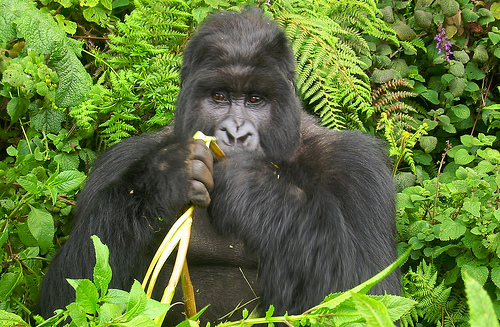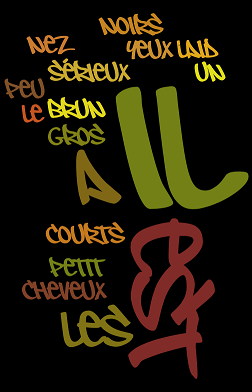2.3. Vocabulario: La descripción personal y el carácter
| Être (Ser o estar) | Avoir (Tener) | Avoir l'air (Parecer) | Décrire (Describir) | Mesurer (Medir) |
| Taille (Estatura) | Allure (Aire, aspecto) | Poids (Peso) | Peau (Piel) | Rides (Arrugas) |
| Taches de rousseur (Pecas) | Lunettes (Gafas) | Grand (Alto) | Petit (Bajo) | Gros (Gordo) |
| Maigre (Flaco) | Mince (Delgado) | Beau/belle (Guapo/guapa | Joli (Bonito) | Laid (Feo) |
| Pâle (Pálido) | Laisser (Dejar) | Empêcher (Impedir) | Interdire (Prohibir) | Gronder (Regañar) |
| Se facher (Enfadarse) | Punir (Castigar) | Oser (Atreverse) | Charme (Encanto) | Envie (Ganas) |
| Fierté (Orgullo) | Folie (Locura) | Politesse (Educación) | Jalousie (Envidia, celos) | Joie (Alegría) |
| Méchant (Malo) | Paresse (Pereza) | Punition (Castigo) | Ruse (Argucia, astucia) | Amusant (Divertido) |
| Bavard (Charlatán) | Bête (Tonto) | Bizarre (Raro) | Brave (Valiente) | Coquin (Pillo) |
| Drôle (Curioso, divertido) | Effronté (Descarado) | Espiègle (Travieso) | Étourdi (Despistado) | Impoli (Maleducado) |
| Joyeux (Alegre) | Maladroit (Torpe) | Pauvre (Pobre) | Sûr (Seguro) | Poli (Educado) |
| Surprenant (Sorprendente) |

